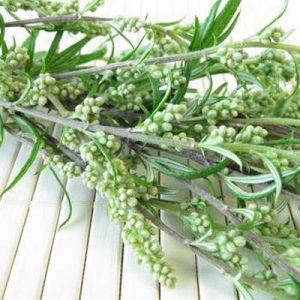Artesunate

Current research conducted at Heidelberg University has shown that in the field of cancer treatment with artesunate on a breast cancer cell line [2] positive results were achieved in reducing tumour size. Compared to the healthy, intact cells, a targeted artesunate effect was observed in the cancer cells.
The mechanism of action of artesunate in the degenerated cancer cells is a result of the elevated iron content in the cancer cells.
In order to maintain their continuous cell division, cancer cells need iron and have a correspondingly larger number of receptors to facilitate greater uptake. Therefore, consumption or even infusions of iron should be avoided at all costs, since iron can stimulate tumour growth substantially. The reported iron deficiency in the blood is often a distribution disorder, because most of the iron is located in the tumour cells or at the inflammation sites. We can detect this mechanism from other blood values, and so decide whether artesunate is the appropriate therapy for our patients.
Artesunate breaks iron down into toxic oxygen radicals, which poison and destroy the cancer cells. Artesunate has a further effect on the growth of cancerous growths. It prevents the formation of new blood vessels, and so limits the supply of energy to the cancer cells, possibly preventing the tumour from forming new metastases.
[1] Intern. J. Oncology 18: 767 –773, 2001 Effert et al
[2]Artesunate activates mitochondrial apoptosis in breast cancer cells via iron-catalysed lysosomal reactive oxygen species production.A. Hamacher-Brady et al.; J Biol Chem. 2011 Feb 25; 286(8): 6587-6601, DOI: 10.1074/jbc.M110.210047


